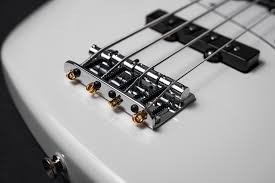When it comes to your instrument, for all intents and purposes, it is like a car or a house. It is your prized possession that starts off as a blank canvas, and you have full reign to make it as uniquely you as possible.
On top of a brand, musicians will look at instrument specifications, colors, shapes, and abilities. Then there is the desire to alter it. Change the pickups. Add stickers. Experience a few battle scars.
Of course, there are those folks that like to keep a pristine, "factory sealed" type look. That is fine, too.
When looking at bass guitars, there are many different stylistic choices, but one variation that is often discussed is Fretted vs. Fretless Basses.
So let's break down what exactly that means and where the idea comes from.
Table Of Contents
- What is a Fret?
- Benefits Of A Fretted Bass
- Why Play A Fretless Bass?
- Make The Decision That Works For You
What is a Fret?
When you look at the neck of a bass or guitar, do you see those lines that separate sections down the neck of the instrument?
Those beasts are called frets.
Essentially, when you push your finger down on a string within a fret, it reduces the length of vibration, thus creating a pitch. The farther down the neck you play a fret near the body of the bass, the higher the pitch due to the shorter length of vibration.
Frets are commonly made of nickel-steel alloy or nickel-silver. For more information regarding frets, click here.
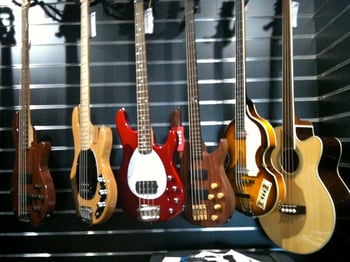
Benefits of a Fretted Bass
The standard bass comes with frets, and if that is considered "standard," it must be for a reason, right? Why are frets so common?
To put it plainly, it makes playing the bass significantly easier. And there is nothing wrong with making something fun and creative easier.
While sliding your hands up and down the neck of the bass you can feel the grooves. And it eliminates stressing about intonation. There are pretty much two scenarios that can occur. Either you properly place your finger on the fret and the correct note and pitch (assuming proper tuning) is played, or you are a little off, and the note buzzes a little.
The margin of error is dramatically minimized with a fretted bass. Wherever you place your finger within the fret (aside from maybe a little buzzing) you will hear the exact pitch because the string is being cut off at the fret, not where your finger is touching.
Clarity is also a major benefit when it comes to the fretted bass. Even incredibly skilled bassist may have trouble with significantly fast and/or staccato riffs on a fretless bass. The frets allow the bassist's hands to fly over the neck without worrying about absolute precision.
Why Play a Fretless Bass?
So, what would make someone want to consider playing a fretless bass instead of a fretted bass?
Let's break down the benefits.
1. Complete Control of Tones
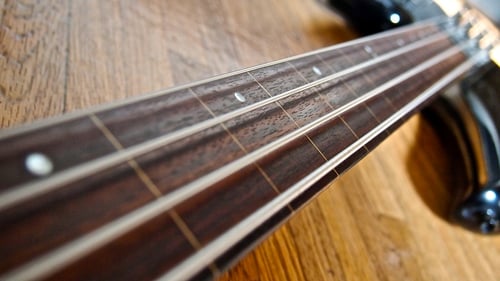
Without frets to stop the vibrations, the musician's fingers are the only thing that is cuts the vibrating strings short and creates the pitch. Since the frets help keep specific notes, such as a G or an F, with a fretless bass, you can find all the tones and microtones that exist between those two notes.
That leaves an infinite amount of creativity and stylistic opportunities for the bassist.
However, with this type of opportunity comes major responsibility. To a more novice musician, there is a high likelihood of accidental intonations. Thus, that is why having frets on the neck of the bass makes playing that much easier.
2. Staying "In Tune" During Live Performances
One awesome benefit of a fretless bass is the ability to fix a "tuning issue" mid-performance.
Notice that your notes are coming out a little flat? Maybe a little sharp? With a fretless bass and the correct know-how, that is not a problem.
Essentially, you can just slide your fingers a little up or down the neck on the out-of-tune string and make the necessary adjustment. You're not limited to the exact tone or pitches solidified by the frets. To an astute bassist, this is an invaluable benefit of a fretless bass.
3. Sliding Harmonics
Without frets getting in the way, you are able to glide across the strings which create fantastic sliding harmonics.
If you want to reach into the upper register of the bass and hit some fairly unique notes, then sliding harmonics is exactly the type of technique you want to add in your arsenal.
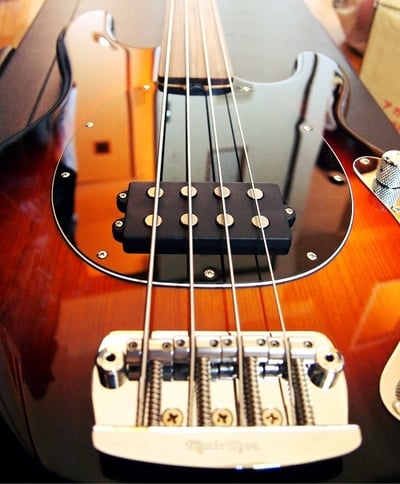
4. Less "Pressure" When Playing
When you first pick up your bass your fingers are ready to go and there is nothing standing in your way.
What about after an hour or so of performing or practicing? Even if you have developed calluses, your fingers may be starting to feel fatigued.
One great thing about the fretless bass is, regardless of high or low action, without frets your fingers have to spend a lot less energy pushing the strings down. You are not fighting against the frets or pushing hard enough to avoid the buzzing sound.
With a fretless bass, you can glide along the neck and use much less effort pushing the strings down which can save you energy during the home stretch of your performance.
Make the Decision that Works For You
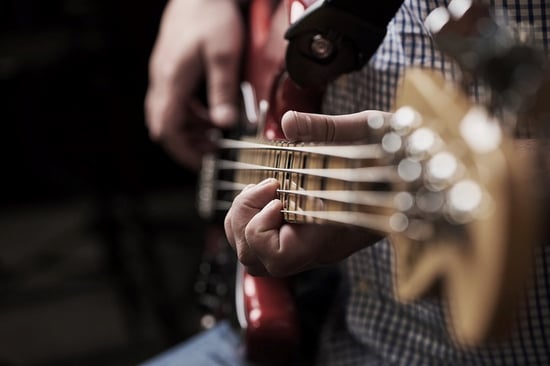
While everyone has their differing opinions between, "fretted basses are better!" and "Real professionals use fretless basses!" there is one important thing to remember: just play.
Don't get paralyzed by worrying which bass is more suited for you, or how you will look to others or anything like that. Pick whichever one feels best to you and play your heart out!
Important tip: We highly recommend trying each bass before making a significant purchase. Call your local music store and see if they have both options in stock. If so, give each a try. While articles like this can give you solid information, only you know what feels right for you.
If you are more of an intermediate musician and would like more opportunities to hone your bass craft, look no further than the Atlanta Institute of Music and Media.
At AIMM, you learn from both sides of the studio. That means you learn the technical and recording aspects of music along with the organic focus on bass (or any instrument of your choice, including voice, guitar, drum, and keyboard).
Our Music and Technology Degree with a Focus on Bass will provide you with the information and one-on-one attention in state-of-the-art studios that will boost your potential to heights you've never imagined. Each course is taught by industry-leading professionals that will match your passion each and every day.
AIMM also offers an Online Certificate in Music and Technology: Bass Concentration. From the comfort of your own home you will have the opportunity to master the bass and learn valuable tracking, mixing, and mastering techniques.
You'll truly learn why the bassist is the most important band member!
For more information on AIMM's Bass Program, click the link below today.
